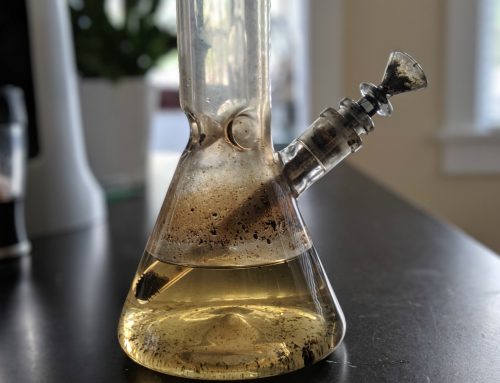As things stand right now, the North American states that have legalized recreational cannabis have opened their doors and kick-started something of a free for all licensing for anyone looking to get involved. You might not happen to live in Boston for example, but just as long as you’re within a realistic commuting distance, there’s nothing to stop you applying for the required licensing and setting up your own pot business in Beantown.
Or at least, that’s how things are playing out for the time-being. We can safely assume that there are quite a few established business owners out there who will today be hoping and praying that their own cities of business don’t follow the example set this week by Oakland.
Oakland Locals Only Policy
If the news has somehow managed to pass you by, lawmakers in Oakland have decided that if you want to own and operate a cannabis business within city limits, you will also have to reside permanently in the city. Suffice to say, pretty horrific news for entrepreneurs like Dan Grace – owner and operator of Dark Heart Nursery. Despite the fact that he’s worked in Oakland more than 10 years and has a family history in the city going back three generations, the fact that he is a San Leandro resident means that is pretty much game over for his entire business.
“We’re sitting here with millions of dollars of investments, millions paid in taxes to the city and 60 local employees. And we’re going to have to shutter our doors,” said Dan Grace, who runs the East Oakland nursery.
The decision was made last Tuesday as part of an Oakland City Council, during which a variety of measures were discussed as to how regulation of cannabis businesses should be handled in the city. The meeting turned out to be both heated and complicated, as opposing counsel factions debated rules approved in May that were supposed to provide reparations to local residents whose marijuana use was disproportionately policed in recent decades. Ultimately, the program was allowed to remain in place and the meeting was able to end with numerous agreements having been reached.
“Black folks built this city and we demand ownership in the industry,” said Carroll Fife, a local organizer with a coalition pushing for the equity laws.
“We’re watching the end of an empire… And the part that we need to do to make sure that happens is have that economic base. We do that as owners, not as workers.”
Supporters of the bill had since the very first time it was proposed argued that it would be unfair to allow a flood of non-resident investors, developers and business owners to take over the legal cannabis industry of Oakland, given the city’s turbulent past during cannabis prohibition.
Licences Should be For Locals on Low Incomes
The law was passed unanimously last year, but it was quickly reported that around half of those who voted regretted supporting the bill and suggested that the ordinances be immediately scrapped. They instead suggested that a program should be introduced to help local residents on low incomes obtain the required loans and financial backing to start their own cannabis businesses.
Prior to the alterations brought about on Tuesday, legislation in Oakland stated that half of the cannabis permits available in the city would be reserved for local residents who had been imprisoned for marijuana offences within the last 10 years. Those who lived within specific areas of Oakland where cannabis arrests were particularly severe and concentrated in 2013 also qualified for these reserve permits.
As of now, the system by which cannabis permits will be provided in Oakland will happen in two phases. First, half of the licenses will be reserved for equity applicants, but this will come to an end just as soon as an assistance program that has been set up hits the three-million-dollar mark. In the second phase of the program, there will be no restrictions whatsoever with regard to who can obtain a licence – just as long as they are permanent residents of Oakland.
Time to Redress The Balance of Racial Inequality
The legislative alterations that came about on Tuesday were implemented following the study of a report from Oakland’s newly created Department of Race and Equity. It showed that over recent years, and despite the fact that cannabis usage rates between whites and African Americans have been largely the same, there has been an enormous disparity in arrest rates between the two races. In Oakland, a full 77% of all cannabis arrests in at 2015 were of African Americans. This, despite the fact they make up less than one-third of the city’s population.
“We have great disparities between more well off and less well-off operators — those that, especially in the cannabis industry, can’t get a traditional loan from a bank, can’t get traditional business advice, (compared to) those that have mom and dad offering a loan to help start your business (who) haven’t been arrested and convicted of a cannabis offense,” said Greg Minor, assistant city administrator, who worked on the report.
“If we were to just open permitting today, we would just be maintaining those disparities into the future, if not exacerbating them.”
Oakland Preventing Monopolisation?
Elsewhere, it remains highly unlikely that any such restrictions will be imposed with regard to where the owners of cannabis businesses can and cannot reside, in order to set up shop within city limits. The situation in Oakland over the past few years may not have been unique, but is certainly one of the most well-documented and highly publicised examples of cannabis-related racial discrimination in the United States.
The matter of whether it is beneficial to eliminate outsiders and close existing businesses run by out-of-towners is open to debate. However, any ordinance that gives low-income individuals and minorities the chance to set up and run their own cannabis businesses alongside established brands and wealthier investors cannot be a bad thing. Fears of the cannabis industry being monopolised by a handful of enormous companies have for the time being been shelved by the on-going Federal classification of cannabis as an illegal substance. At the same time, this hasn’t made it any easier for those with limited finances to begin building a name for themselves in the legal cannabis industry.
If anything, it has made it even more difficult to obtain essential financial support.
As such, it will be interesting to see how things play out in Oakland over the coming months and whether the new ordinance really does make a difference for the better. If it does, there’s every chance other towns and cities across the United States could be inspired to adopt similar measures themselves.














